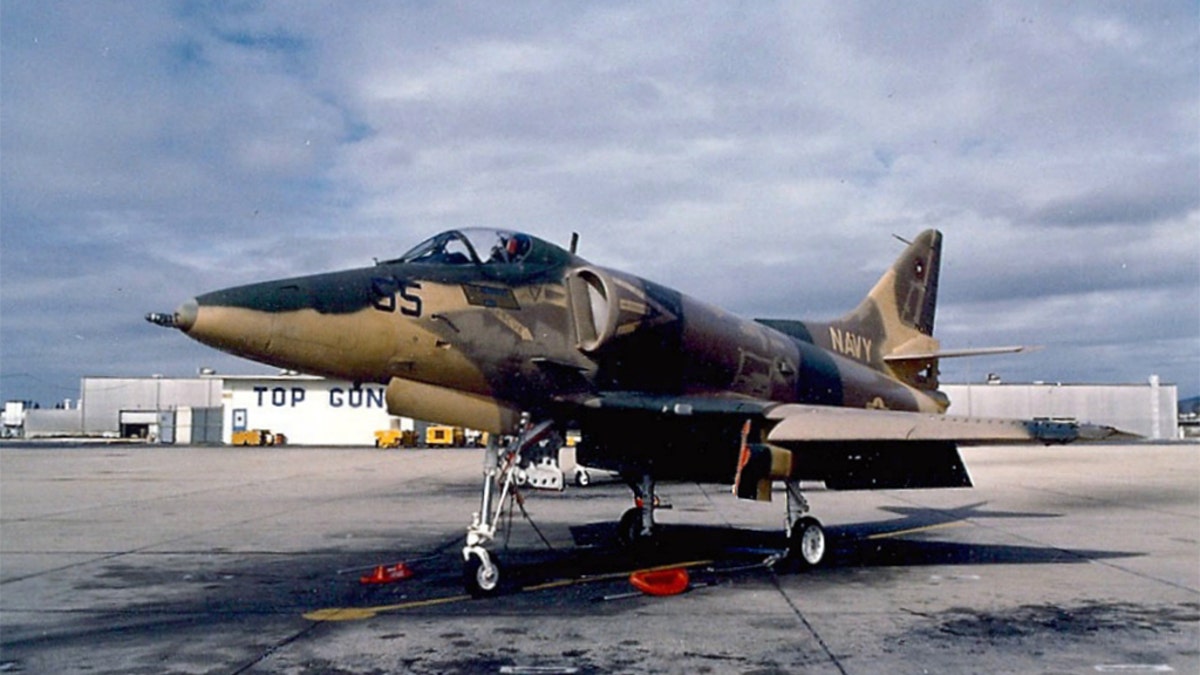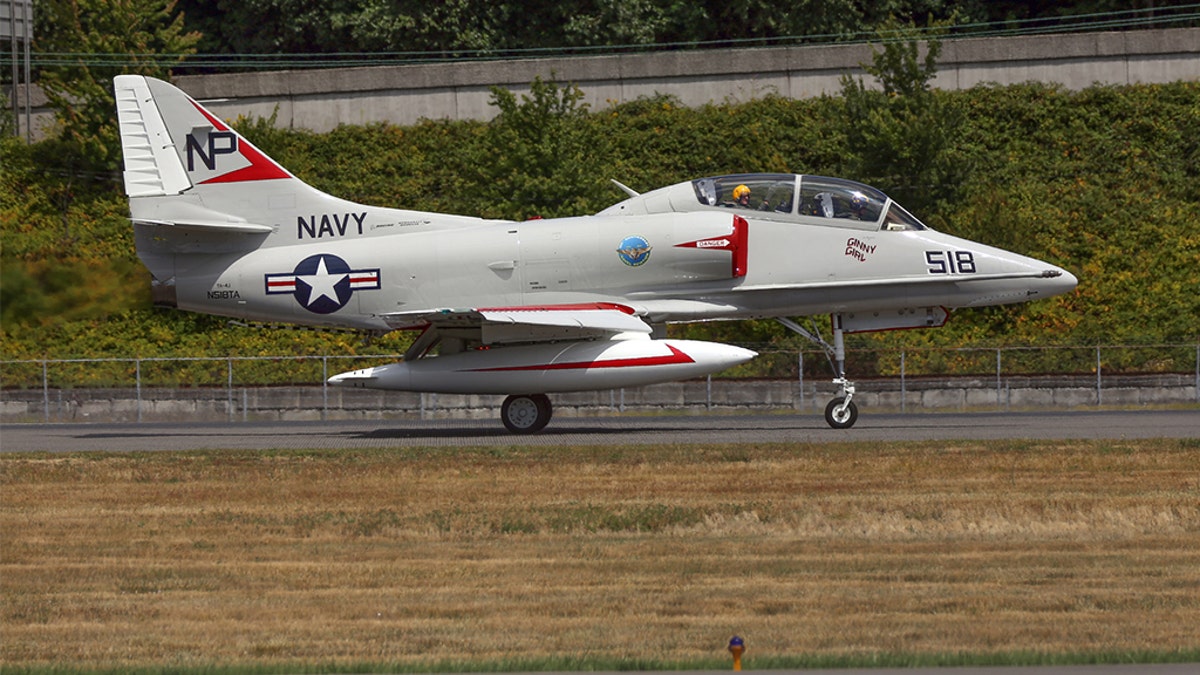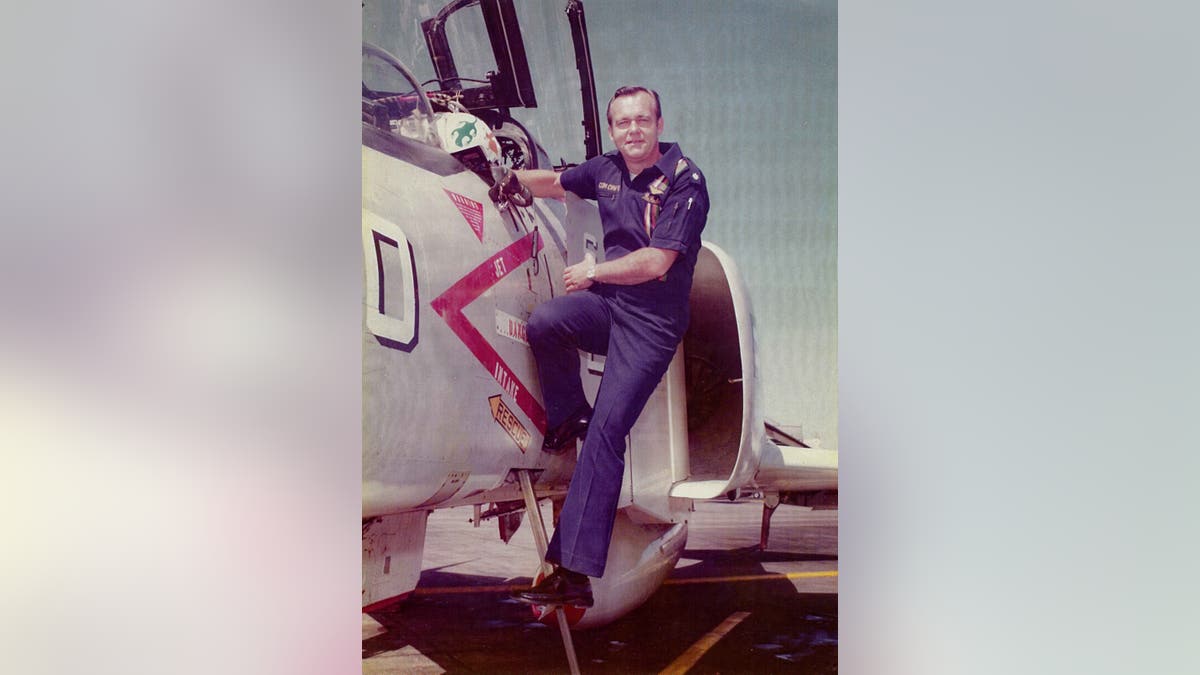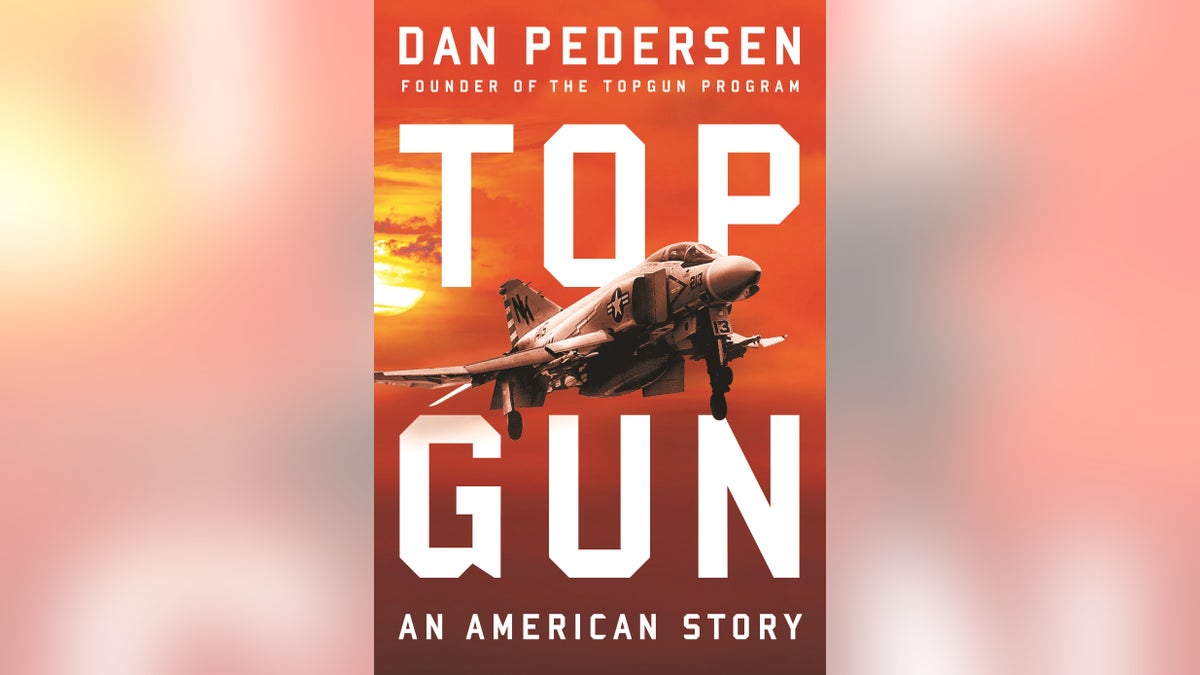Untold story of the legendary TOPGUN school
Retired Navy Capt. Dan Pedersen on 50th anniversary of the legendary Naval Fighter Weapons School.
In the spring of 1969, I was the officer in charge of the formation of Topgun, the U.S. Navy Fighter Weapons School. My eight hand-picked instructors and I established the graduate course in advanced tactics and presided over the first class of young naval aviators. Our collective effort finally turned around the failing air war over Vietnam.
At Miramar, California, made famous later by the movie “Top Gun,” I was surrounded by a different breed of men whose dedication and drive I’ve never encountered before or since. They developed the standards for what Topgun would ultimately be, and for the past 50 years the school continues to attract and develop the best fighter pilots in the world. We took great young naval aviators and made them even better.
The movie made Americans believe the people who strap into a Mach 2 jet fighter to catapult skyward from an aircraft carrier deck were testosterone-addled, wild men with Hollywood-sized egos.
TOM CRUISE POSTS FIRST 'TOP GUN 2' PHOTO FROM MOVIE SET
The truth, of course, is more nuanced. The movie got our competitiveness dead on. One of our Topgun instructors once said, “I’d rather die than lose.” When we were kids, we played sports. We grew up challenged by our coaches to be better than the guy across the line of scrimmage from us. Perhaps it was always coded into our DNA, but the Navy took that competitive spirit and gave it direction. It made us self-starters, determined to learn more, fly more, win more than the next guy, but never in a way that diminished someone else.

A U.S. Navy Douglas A-4E Skyhawk (BuNo 151095) from the Fighter Weapons School ("Top Gun") at Naval Air Station Miramar, California (USA) in the late 1980s or early 1990s. (photo U.S. Navy)
In combat, competitiveness becomes a winning skill. When it is you against an enemy who is flying a more agile or more capable plane, the difference between victory and death is pilot quality – and the indomitable will to win at any cost. Even in training, fighter aviation is a dangerous profession. All of us in this business have lost people close to us, and their deaths are never forgotten.
Flying is always a rush. The movie “Top Gun” got that right as well. In fact, the flying bug bit Tom Cruise during its filming. Today, he owns his own fighter plane, a World War II-era prop driven P-51 Mustang.
What is it about flying? It defines us. When we’re on the ground, we’re thinking about being in the air. When we’re in the air, it is our element, our place. We maneuver with precision, outthinking our opponents on a fast-moving three-dimensional chessboard so we can seize an advantage and score the killing shot.

Seattle, Wa, United States - July 17, 2016: The TA-4J, a 2-seater version of the A4 Skyhawk light navy jet fighter was seen flying over Seattle for Boeing's centennial celebrations.
There is another aspect of flying that fighter pilots rarely discuss. The beauty, that sense of freedom being above the clouds, coming back to the boat after a tough hour on the range, sun dropping on the horizon – it is an experience those tethered to the ground can never share. Being part of that remarkable world infuses us with a sense of joy and pride we rarely find on terra firma.
Topgun grads are a brotherhood that is physically fit. You have to be able to withstand the G-forces. We come back from dogfights bathed in sweat, wrung out from the radical maneuvers. A strong physical core is essential. Most of us hit the gym hard to get that tiny advantage in strength that gives you an extra second or two to remain fully conscious before the G-forces drain the blood from our brains and we grey out.

Which brings me to aggressiveness. The movie depicted us as recklessly aggressive loners. Topgun pilots are cerebral, thinking ahead, measuring risk versus reward with the mission always the priority. This requires discipline, teamwork and a knack for doing the unexpected. Yes, they are very aggressive –there are no wilting flowers in naval aviation – but we’re aggressive in the right way. For all our competitiveness, we know we fly for the same team, and the brotherhood is always bigger than personal achievement. Our lives depend on each other.
Some think we’re “Animal House” with gold wings on our chest. Party-timers, perpetually skirt-chasing on the ground, out of control in the air. The truth is far less glamorous. The average Topgun grad possesses at least one college degree, usually in some field of engineering or hard science. The most intelligent men I’ve ever known were Topgun grads or instructors

CLICK HERE TO GET THE FOX NEWS APP
Most important, they are natural leaders and teachers. Each grad leaves NAS Fallon, Topgun’s home these days, to return to his or her fleet squadrons as an evangelist for the values and tactics we teach. The students become the mentors. From learning to fight one on one, our grads grow to be aerial leaders capable of managing large formations, navigating to precise locations on strict timetables to execute complex tasks, all while ensuring the rest of the strike group carries out their assigned roles. It is an enormously complex enterprise, the last place you’d find a Blutarsky.
The sky is our calling, not our job. To be a Topgun pilot is to join a sort of aerial monastic order. It is our driving passion, our life’s work. That devotion to our calling makes us the best of the best. For 50years, from Hanoi to Syria, our enemies have sought to prove that wrong. They lose. Every single time. The men of Topgun give America that vital edge.





















